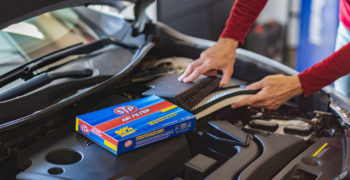Aug . 13, 2024 10:56 Back to list
Understanding the Importance of Replacing Your Kia Optima Cabin Air Filter Regularly for Optimal Air Quality
Understanding the Importance of the Kia Optima Cabin Air Filter
The Kia Optima, a popular midsize sedan known for its stylish design and reliability, offers a comfortable driving experience. One of the elements that significantly contribute to this comfort is the cabin air filter. Often overlooked, the cabin air filter plays a crucial role in maintaining a healthy environment inside the vehicle. This article explores the importance of the Kia Optima cabin air filter, its functions, maintenance tips, and signs that it may need replacement.
What is a Cabin Air Filter?
The cabin air filter is designed to filter the air that enters the interior of the Kia Optima through the heating, ventilation, and air conditioning (HVAC) system. It traps airborne particles such as dust, pollen, mold spores, and other allergens, ensuring that the air you breathe while driving is clean and free from pollutants. In cities with heavy traffic or during certain seasons when pollen counts are high, the cabin air filter becomes even more critical for maintaining air quality inside the vehicle.
Functions of the Cabin Air Filter
1. Air Quality Improvement The primary function of the cabin air filter is to improve air quality by removing contaminants. This is especially important for individuals with allergies or respiratory problems, as cleaner air can alleviate symptoms and enhance overall well-being.
2. Odor Reduction A clean cabin air filter helps prevent unpleasant odors from entering the vehicle. Over time, dust and debris accumulate in the filter, which can lead to musty smells that affect the driving experience. Replacing the cabin air filter regularly can help maintain a refreshing scent inside the Optima.
3. HVAC System Efficiency A clogged or dirty cabin air filter can impede airflow, causing the HVAC system to work harder. This can lead to increased fuel consumption and potentially lower the overall efficiency of the vehicle's climate control system.
Maintenance Tips
To ensure that the cabin air filter functions effectively, regular maintenance is essential. Here are some tips for maintaining the cabin air filter in your Kia Optima
kia optima cabin air filter

- Check the Owner's Manual The owner’s manual provides essential information on how often the cabin air filter should be replaced. Generally, it is recommended to inspect the filter every 15,000 to 30,000 miles, but this can vary based on driving conditions.
- Seasonal Replacements Consider changing the filter at the beginning of each season. This is particularly vital before the spring when pollen is prevalent and before winter when using the heater often leads to dust accumulation.
- Inspect Regularly If you notice reduced airflow from the HVAC system, musty odors, or increased allergens inside the vehicle, it’s a good idea to check the cabin air filter for dirt and debris.
Signs It Needs Replacement
Several signs indicate that the cabin air filter in your Kia Optima may need to be replaced
1. Reduced Airflow If you notice a significant reduction in airflow while using the HVAC system, this may indicate that the filter is clogged.
2. Unpleasant Odors Persistent foul smells, especially when the air conditioning is turned on, can suggest that the cabin air filter is dirty and harboring mold or mildew.
3. Increased Allergy Symptoms If you or your passengers experience increased allergy symptoms, it could be due to a dirty cabin air filter failing to trap allergens effectively.
In conclusion, the cabin air filter is a vital component of the Kia Optima that should not be neglected. By understanding its importance, maintaining it regularly, and recognizing the signs that it needs replacement, you can ensure a healthier and more comfortable driving experience. Regular checks and timely replacements can lead to better air quality, improved HVAC efficiency, and an enhanced overall experience in your Kia Optima.
-
Toyota Corolla Hatchback Cabin Air Filter – High Efficiency & Easy Installation
NewsJul.08,2025
-
Premium Canister Fuel Filter Supplier High Quality Oil Filtration Solutions
NewsJul.08,2025
-
Premium Car Filter Oil Solutions Leading Car Oil Filter Exporter Hyundai Car Oil Filter Exporters
NewsJul.08,2025
-
Buy 17x21x1 Air Filter – Improve Air Quality & HVAC Efficiency Affordable Air & Cabin Air Filter Cost
NewsJul.07,2025
-
High-Performance Filter Element Fuel – Durable, Efficient & Cost-Effective Solutions
NewsJul.07,2025
-
High-Quality Engine Filter and Cabin Filter for Superior Airflow Affordable Cabin and Engine Air Filter Cost
NewsJul.07,2025


